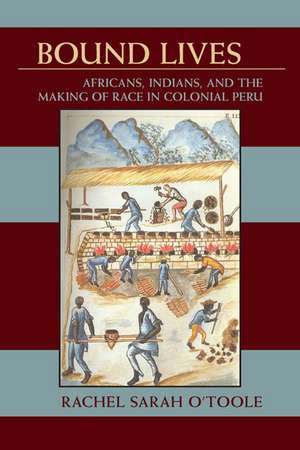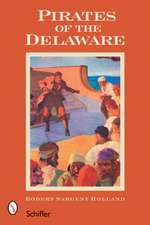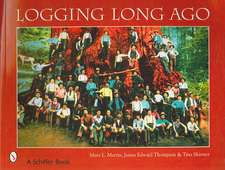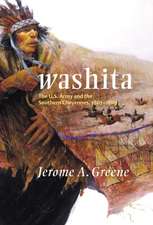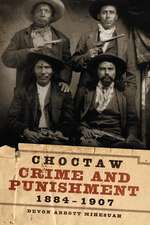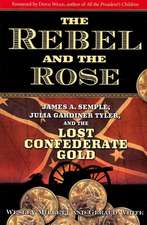Bound Lives: Africans, Indians, and the Making of Race in Colonial Peru: Pitt Latin American Series
Autor Rachel Sarah O'Tooleen Limba Engleză Paperback – 14 mai 2012
Bound Lives chronicles the lived experience of race relations in northern coastal Peru during the colonial era. Rachel Sarah O’Toole examines the construction of a casta (caste) system under the Spanish government, and how this system was negotiated and employed by Andeans and Africans.
Royal and viceregal authorities defined legal identities of “Indian” and “Black” to separate the two groups and commit each to specific trades and labor. Although they were legally divided, Andeans and Africans freely interacted and depended on each other in their daily lives. Thus, the caste system was defined at both the top and bottom of society. Within each caste, there were myriad subcategories that also determined one’s standing.
The imperial legal system also strictly delineated civil rights. Andeans were afforded greater protections as a “threatened” native population. Despite this, with the crown’s approval during the rise of the sugar trade, Andeans were driven from their communal property and conscripted into a forced labor program. They soon rebelled, migrating away from the plantations to the highlands. Andeans worked as artisans, muleteers, and laborers for hire, and used their legal status as Indians to gain political representation.
As slaves, Africans were subject to the judgments of local authorities, which nearly always sided with the slaveholder. Africans soon articulated a rhetoric of valuation, to protect themselves in disputes with their captors and in slave trading negotiations. To combat the ongoing diaspora from Africa, slaves developed strong kinship ties and offered communal support to the newly arrived.
Bound Lives offers an entirely new perspective on racial identities in colonial Peru. It highlights the tenuous interactions of an imperial power, indigenous group, and enslaved population, and shows how each moved to establish its own power base and modify the existing system to its advantage, while also shaping the nature of colonialism itself.
Royal and viceregal authorities defined legal identities of “Indian” and “Black” to separate the two groups and commit each to specific trades and labor. Although they were legally divided, Andeans and Africans freely interacted and depended on each other in their daily lives. Thus, the caste system was defined at both the top and bottom of society. Within each caste, there were myriad subcategories that also determined one’s standing.
The imperial legal system also strictly delineated civil rights. Andeans were afforded greater protections as a “threatened” native population. Despite this, with the crown’s approval during the rise of the sugar trade, Andeans were driven from their communal property and conscripted into a forced labor program. They soon rebelled, migrating away from the plantations to the highlands. Andeans worked as artisans, muleteers, and laborers for hire, and used their legal status as Indians to gain political representation.
As slaves, Africans were subject to the judgments of local authorities, which nearly always sided with the slaveholder. Africans soon articulated a rhetoric of valuation, to protect themselves in disputes with their captors and in slave trading negotiations. To combat the ongoing diaspora from Africa, slaves developed strong kinship ties and offered communal support to the newly arrived.
Bound Lives offers an entirely new perspective on racial identities in colonial Peru. It highlights the tenuous interactions of an imperial power, indigenous group, and enslaved population, and shows how each moved to establish its own power base and modify the existing system to its advantage, while also shaping the nature of colonialism itself.
Din seria Pitt Latin American Series
-
 Preț: 381.57 lei
Preț: 381.57 lei -
 Preț: 401.52 lei
Preț: 401.52 lei -
 Preț: 376.96 lei
Preț: 376.96 lei -
 Preț: 383.46 lei
Preț: 383.46 lei -
 Preț: 345.96 lei
Preț: 345.96 lei -
 Preț: 342.26 lei
Preț: 342.26 lei -
 Preț: 380.10 lei
Preț: 380.10 lei -
 Preț: 305.69 lei
Preț: 305.69 lei -
 Preț: 346.86 lei
Preț: 346.86 lei -
 Preț: 346.86 lei
Preț: 346.86 lei -
 Preț: 330.30 lei
Preț: 330.30 lei -
 Preț: 347.80 lei
Preț: 347.80 lei -
 Preț: 343.18 lei
Preț: 343.18 lei -
 Preț: 334.31 lei
Preț: 334.31 lei -
 Preț: 310.31 lei
Preț: 310.31 lei -
 Preț: 350.01 lei
Preț: 350.01 lei -
 Preț: 408.89 lei
Preț: 408.89 lei -
 Preț: 430.21 lei
Preț: 430.21 lei -
 Preț: 374.77 lei
Preț: 374.77 lei -
 Preț: 365.04 lei
Preț: 365.04 lei - 17%
 Preț: 384.06 lei
Preț: 384.06 lei -
 Preț: 421.48 lei
Preț: 421.48 lei -
 Preț: 343.18 lei
Preț: 343.18 lei -
 Preț: 380.10 lei
Preț: 380.10 lei -
 Preț: 342.63 lei
Preț: 342.63 lei -
 Preț: 416.29 lei
Preț: 416.29 lei -
 Preț: 381.78 lei
Preț: 381.78 lei -
 Preț: 345.96 lei
Preț: 345.96 lei -
 Preț: 376.96 lei
Preț: 376.96 lei -
 Preț: 340.95 lei
Preț: 340.95 lei -
 Preț: 387.14 lei
Preț: 387.14 lei -
 Preț: 342.26 lei
Preț: 342.26 lei -
 Preț: 346.86 lei
Preț: 346.86 lei -
 Preț: 414.46 lei
Preț: 414.46 lei -
 Preț: 343.18 lei
Preț: 343.18 lei -
 Preț: 483.89 lei
Preț: 483.89 lei -
 Preț: 317.69 lei
Preț: 317.69 lei -
 Preț: 373.46 lei
Preț: 373.46 lei -
 Preț: 348.74 lei
Preț: 348.74 lei -
 Preț: 316.79 lei
Preț: 316.79 lei -
 Preț: 134.11 lei
Preț: 134.11 lei -
 Preț: 338.54 lei
Preț: 338.54 lei -
 Preț: 336.70 lei
Preț: 336.70 lei -
 Preț: 407.97 lei
Preț: 407.97 lei -
 Preț: 338.37 lei
Preț: 338.37 lei -
 Preț: 338.54 lei
Preț: 338.54 lei -
 Preț: 376.04 lei
Preț: 376.04 lei -
 Preț: 331.86 lei
Preț: 331.86 lei -
 Preț: 313.07 lei
Preț: 313.07 lei -
 Preț: 383.46 lei
Preț: 383.46 lei
Preț: 340.42 lei
Nou
Puncte Express: 511
Preț estimativ în valută:
65.15€ • 68.90$ • 54.34£
65.15€ • 68.90$ • 54.34£
Carte tipărită la comandă
Livrare economică 31 decembrie 24 - 14 ianuarie 25
Preluare comenzi: 021 569.72.76
Specificații
ISBN-13: 9780822961932
ISBN-10: 0822961938
Pagini: 280
Dimensiuni: 152 x 229 x 15 mm
Greutate: 0.39 kg
Ediția:1
Editura: University of Pittsburgh Press
Colecția University of Pittsburgh Press
Seria Pitt Latin American Series
ISBN-10: 0822961938
Pagini: 280
Dimensiuni: 152 x 229 x 15 mm
Greutate: 0.39 kg
Ediția:1
Editura: University of Pittsburgh Press
Colecția University of Pittsburgh Press
Seria Pitt Latin American Series
Recenzii
“A penetrating and thoughtful analysis of the distinct legal statuses of indigenous and Afro-descended Andeans, as well as the interrelations between these two groups in colonial discourse and the life experiences that emerge from below. . . . Well supported by archival evidence and a strong infrastructure of references to previous scholarship.”
—Journal of Latin American Studies
—Journal of Latin American Studies
“While historians will continue to study Africans and Indians in isolation, O’Toole’s richy study suggests that they would do better not to.”
—Hispanic American Historical Review
—Hispanic American Historical Review
“Throughout the book, specific attention to how subaltern actors maneuvered within the bounds of colonial society is the strengh of the work. Based on an analysis of archival records, O’Toole sheds light on how those who survived the repeatedly disruptive journeys from Africa to the Caribbean to Panama and to Peru created new bonds based on shipboard, ethnic, and regional affinities that formed the basis of the African community in Peru. Her understanding of the institution in Peru, above all in its conceptualization of slavery as the control of time rather than movement, such that enslaved people moved broadly within regional society but owed periods of labor to their owners.”
—Colonial Latin American Historical Review
—Colonial Latin American Historical Review
“[O’Toole’s] greatest innovation may be in her simultaneous analysis of Andeans and Africans in the same narrative . . . Bound Lives shows that both groups used the colonial framework of paternalistic colonial law and casta categories to establish ‘legal locations’ from which to protect their communities and families.”
—Latin American Research Review
—Latin American Research Review
“Rachel O'Toole’s study is the first comprehensive analysis of how Africans and Indians interacted and perceived each other and how such perceptions and interactions shaped the notion of ‘race’ in colonial Peru. It is a fine contribution to our still scarce knowledge on Indian-Black relationships in rural and urban areas. O’Toole shows us that such relationships could be conflict-ridden, but that this was not necessarily the case, as both social segments walked through the colonial legal system.”
—Christine Hunefeldt-Frode, University of California, San Diego
—Christine Hunefeldt-Frode, University of California, San Diego
“An important, unique feature of Bound Lives is the documentation of the heterogeneity of origins among slaves—O’Toole has tapped with great eye into the usual archives, using an agile historical eye, to transform them into sources of novel information. The relationship between slaves and caciques, and indigenous population in general, sheds a different light on coastal cities that historiography and nation building had emptied of ‘Indieans.’ Hence this book also contributes to knowledge about the coastal landscapes of the viceroyalty, and its relationship with the world around them.”
— Marisol De La Cadena, University of California-Davis
— Marisol De La Cadena, University of California-Davis
Notă biografică
Rachel Sarah O’Toole is associate professor of history at the University of California, Irvine.
Descriere
Bound Lives chronicles the lived experience of race relations in northern coastal Peru during the colonial era. O’Toole examines the construction of a casta (caste) system under the Spanish government, and how this system was negotiated and employed by Andeans and Africans.
